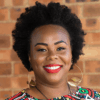Annual Symposium in honor of bell hooks
Please find below the letter included in the program:’
Watch the annual bell hooks symposium Black Feminism, Black Freedom at the following link:
www.packnetwork.com/blackfeminismfreedom
We are so thrilled to have you join us for the second annual “bell hooks symposium.” We first gathered last year, two months after our beloved Black feminist trailblazer joined the ancestors. In the spirit of collective mourning and communal care, we created a special, sacred space for reflection and celebration dedicated to the genius of bell hooks. Together we gifted ourselves with the time as Black feminist scholars to mourn collectively and share what the legacy of bell hooks meant to us.
This year, we gather under different circumstances, still steadfastly committed to honoring our Black feminist ancestors and the roads that they paved for us to be here. We also take seriously the charge to imagine the futures they might have envisioned as well as to re-imagine together. Our symposium theme for 2023—Black Feminism, Black Freedom—is inspired by the long history of Black feminism as a freedom project from its very inception. Indeed, as Fannie Lou Hamer declared in 1971: “Nobody’s free until everybody’s free.” Likewise, in 2017, Keeanga-Yamahtta Taylor posits strategies for freedom writing, “How we get free…” And importantly, Mariame Kaba cites freedom as an action by proclaiming in 2021: “We do this ’til we free us.”
In other words, for the Black feminist, Black freedom is always front of mind. The manifold iterations and couplings of Black feminism and Black freedom serve as the inspiration, motivation, foundation, and point of departure for our Africana Studies symposium. Since the earliest conceptualization of the term, Black feminists have imagined, fought for, work towards, built, and strived for freedom. These “freedom dreams” (to use the words of Robin Kelley) have informed our vision as we imagine a better world both in theory and in practice. Because we understand that, in the words of Barbara Smith and the Combahee River Collective, “if Black women were free, it would mean everyone else would have to be free,” we conceptualize Black feminism as an unabashed freedom project. Today we reflect on the entwined theorizing, practicing, imagining, and visioning of Black feminism and Black freedom.
It is our hope that this time of encounter, dialogue, and imagining together will energize, empower, and embolden us to continue the work of building a better, freer world for all.
With love and in solidarity,
Régine Michelle Jean-Charles
Dean’s Professor of Culture and Social Justice
Director of Africana Studies
Professor of Women, Gender, and Sexuality Studies








